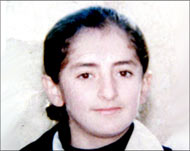WHO help urged in Iraq bird flu
Iraq’s first human death from bird flu has prompted non-governmental organisation, Doctors for Iraq, to appeal to the World Health Organisation to step in to contain a possible spread of the disease.

The appeal comes as the Iraqi Health Ministry already reports a possible third case of death from bird flu being investigated.
And in the country’s Kurdistan region, where the bird flu case was confirmed, a medical official said the province is facing an acute shortage of the drug to fight the disease.
In a press statement, Doctors for Iraq appealed to the WHO to assist the Iraqi Health Ministry in launching a public awareness programme to educate the public on the situation.
A lack of knowledge on the disease “is causing anxiety and confusion in the minds of many Iraqis who are unclear on how significant the threat is and how they can remain healthy,” said the statement on Tuesday.
Another fear is the shortage of equipment such as diagnostic laboratory examination kits, vaccines and medication to treat the disease.
Border controls lacking
Iraq, the NGO added, is one of the most vulnerable countries in the region easily susceptible to the virus because of a number of reasons.
 |
|
Shanjin Abdel Qader died of the |
A lack of border controls and insufficient checks on poultry and meat entering the country is a key concern.
Therefore “the Iraqi Health Ministry needs to cooperate with authorities on the borders to monitor and carry out health checks on goods entering Iraq.”
The expected migration of birds from neighbouring Turkey to Iraq increases the chances of the disease spreading, the NGO also pointed out. Turkey already has four cases of confirmed deaths from bird flu.
The WHO on Monday confirmed that a 15-year-old girl died died on 17 January in the northern Iraqi city of Sulaimaniyah of the H5N1 avian influenza virus.
The girl’s 39-year-old uncle had also died of a severe respiratory disease on 27 January.
Third case
The WHO confirmed that the Iraqi Ministry of Health has informed it of a third human case of respiratory illness that is under investigation for the possible bird flu strain.
The patient is a 54-year-old woman from the same area, who was hospitalised on 18 January.
|
“We are suffering from a lack of medicine to combat the virus” Tahseen Nameq |
Tahseen Nameq, Head of joint Kurdish committee set up to combat the disease, said “we are suffering from a lack of medicine to combat the virus.”
“We have received only 50 pills of Tamiflu,” he said, quoted by AFP.
A single course of medicine per patient consists of two pills a day for five days, giving the whole Kurdish region in northern Iraq enough medicine for five cases.
Nameq said they have approached Baghdad for immediate aid.
The WHO said it is assembling an international team, including representatives of other UN agencies, to assist the Iraqi Health Ministry in its investigation of the situation and its planning of an appropriate public health response.
Culling of birds
Jalal Talabani, Iraq’s president, met members of an Iraqi committee following up the bird flu outbreak and was briefed on efforts to protect Iraqis from any spread of the disease, according to Al-Iraqiya TV which aired footage of the talks.
Meanwhile, a massive programme has been launched to cull birds in Kurdistan.
Iraq is the seventh country to report human H5N1 infection in the current outbreak, according to the WHO.
Doctors for Iraq, established in 2003, is an independent non-governmental organisation focusing on health and human rights issues in Iraq.